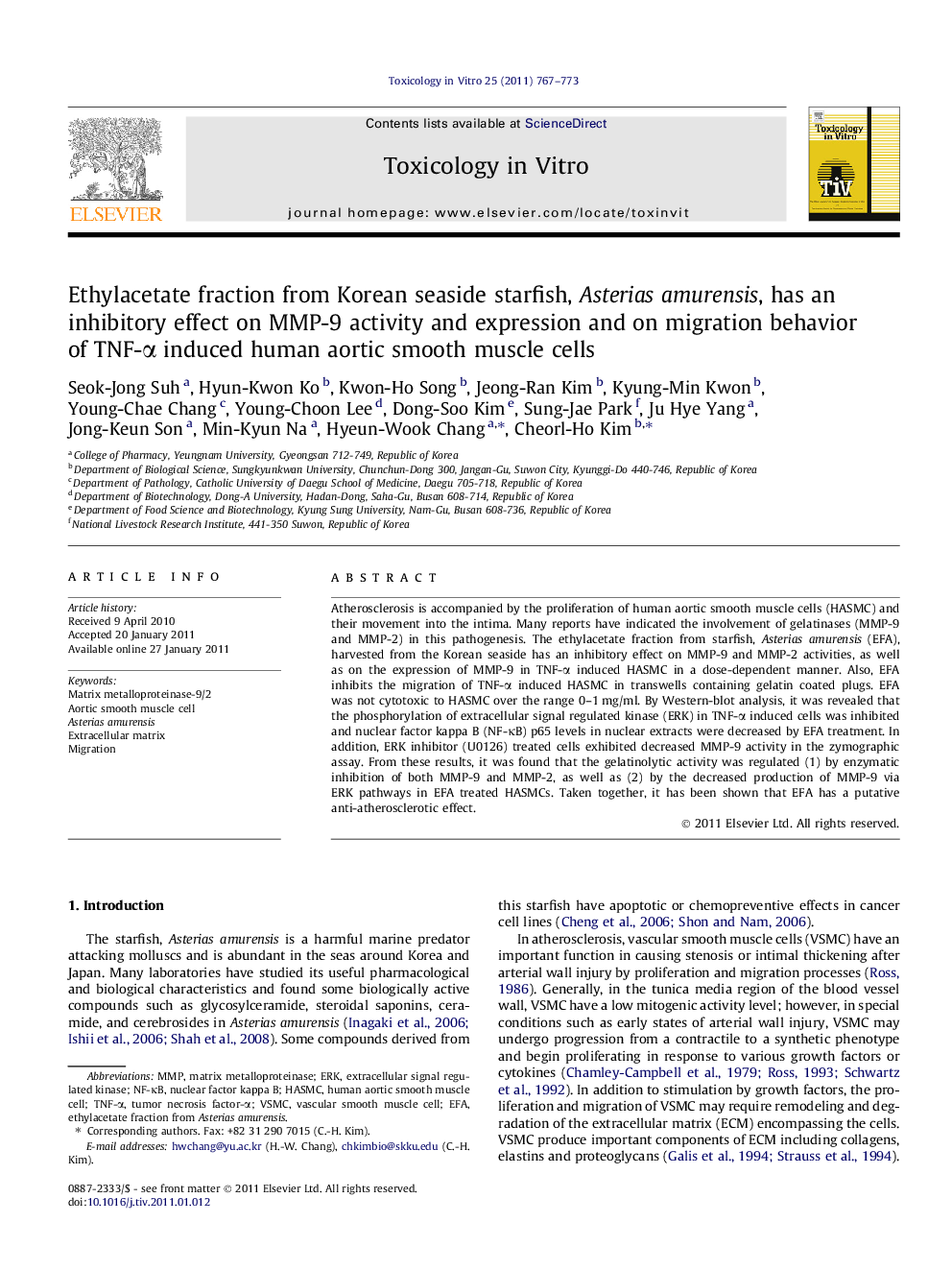| Article ID | Journal | Published Year | Pages | File Type |
|---|---|---|---|---|
| 2602811 | Toxicology in Vitro | 2011 | 7 Pages |
Atherosclerosis is accompanied by the proliferation of human aortic smooth muscle cells (HASMC) and their movement into the intima. Many reports have indicated the involvement of gelatinases (MMP-9 and MMP-2) in this pathogenesis. The ethylacetate fraction from starfish, Asterias amurensis (EFA), harvested from the Korean seaside has an inhibitory effect on MMP-9 and MMP-2 activities, as well as on the expression of MMP-9 in TNF-α induced HASMC in a dose-dependent manner. Also, EFA inhibits the migration of TNF-α induced HASMC in transwells containing gelatin coated plugs. EFA was not cytotoxic to HASMC over the range 0–1 mg/ml. By Western-blot analysis, it was revealed that the phosphorylation of extracellular signal regulated kinase (ERK) in TNF-α induced cells was inhibited and nuclear factor kappa B (NF-κB) p65 levels in nuclear extracts were decreased by EFA treatment. In addition, ERK inhibitor (U0126) treated cells exhibited decreased MMP-9 activity in the zymographic assay. From these results, it was found that the gelatinolytic activity was regulated (1) by enzymatic inhibition of both MMP-9 and MMP-2, as well as (2) by the decreased production of MMP-9 via ERK pathways in EFA treated HASMCs. Taken together, it has been shown that EFA has a putative anti-atherosclerotic effect.
